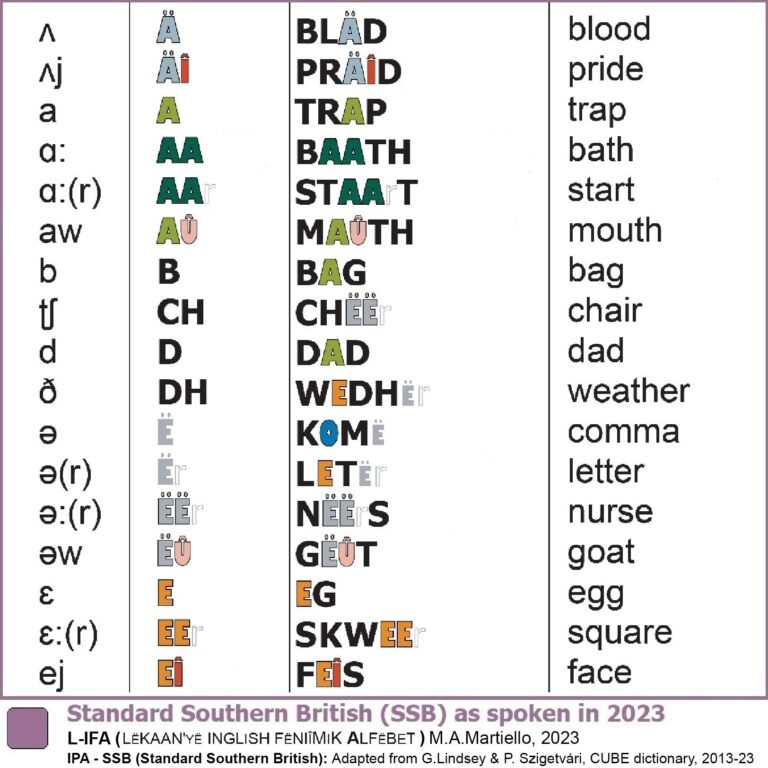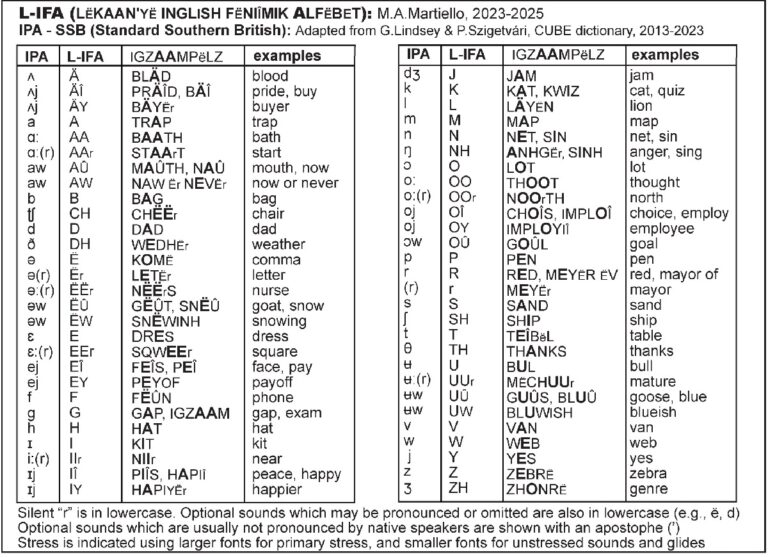L-IFA Phonemic Alphabet
An Intuitive Bridge Between Spelling and Pronunciation
The /LËKAAN'YË INGLISH FËNIÎMIK ALFËBET/ (L-IFA) was specifically developed for learners of English as an additional language to simplify their learning journey. It builds on existing spelling knowledge, making transcribed words easy to visualise and memorise. Minimal use of additional symbols
It is written in uppercase to reinforce pronunciation over the written form and to avoid confusion between the two. Only a handful of additional symbols are used, making it easily accessible for learners. These include the two dots used for the central vowels: the strut vowel /Ä/ and schwa /Ë/; and the circumflex accent for diphthong glides before consonants, e.g., /ÄÎ/, /AÛ/. Glides before vowels within or between words are represented as /ÄY/ and /AW/, for example. Common digraphs are used for some consonant sounds (e.g., SH, CH, TH). 
Lowercase is used for 'historical r' in non-rhotic accents and optional sounds, which may be omitted, for example, in fast speech. Optional sounds, which are usually not pronounced by native speakers, are depicted with an apostrophe. Primary stress is indicated with bold and larger font, while unstressed vowels are shown with smaller font. 
The flexibility of L-IFA allows for adaptation to learners of specific accents. Existing models, derived from the IPA, cover 12 accents, including Standard Southern British (SSB), Received Pronunciation (RP), and General American (GA). Standard Southern British (SSB)
London's current accent
External Links: Other Phonemic Systems
♦ Benjamin Franklin's Phonetic Alphabet A Reformed Mode of Spelling, 1779
♦ Romic Reform Alphabet Henry Sweet, 1877
♦ American Heritage Dictionary Pronunciation Symbols HarperCollins Publishers, N.D.
L-IFA Phonemic Alphabet - Copyright © M. Arcangelo Martiello, 2023. All rights reserved. Copyright protected with www.protectmywork.com. Commercial use without prior written permission is strictly prohibited. Prior written permission is always required in all cases where reproduction is intended for financial gain, regardless of the medium or context. Reproduction, whether in whole or in part, through any means such as books, journals, newspapers, magazines, and web posts, requires prior written permission. Usually, permission will be granted for free, for a nominal fee, or for payment in kind, except in cases where L-IFA plays a substantial individual role. No prior permission is required for personal use. For example, you can reproduce the transcription in L-IFA of London stations for your own learning. No prior permission is required in educational context. You can use L-IFA as part of an educational course, lecture, presentation, report, or thesis. For all other cases, it is necessary to contact us through the contact form.
Tagged english pronunciation, esol, ipa, phonemic alphabet, phonics
